Resource Center
The Transit Workforce Center is pleased to host a curated collection of publications and other materials to assist stakeholders engaged in transit workforce development. The Resource Center includes case studies, training materials, research reports, and other materials of interest, including publications produced by federal government agencies, transit organizations, and independent research entities. Resources may be filtered by topic, resource type, and transit mode. This TWC blog post explains how to use the Resource Center.
We are continuing to update the Resource Center regularly. Please contact us via the Request Help menu option if you would like assistance using the Resource Center or are looking for resources on a particular topic. We also welcome suggestions of topics or specific resources to add.
Content in external resources linked from the Resource Center is solely the responsibility of the resource authors and does not necessarily reflect the perspectives of or endorsement by the Transit Workforce Center.
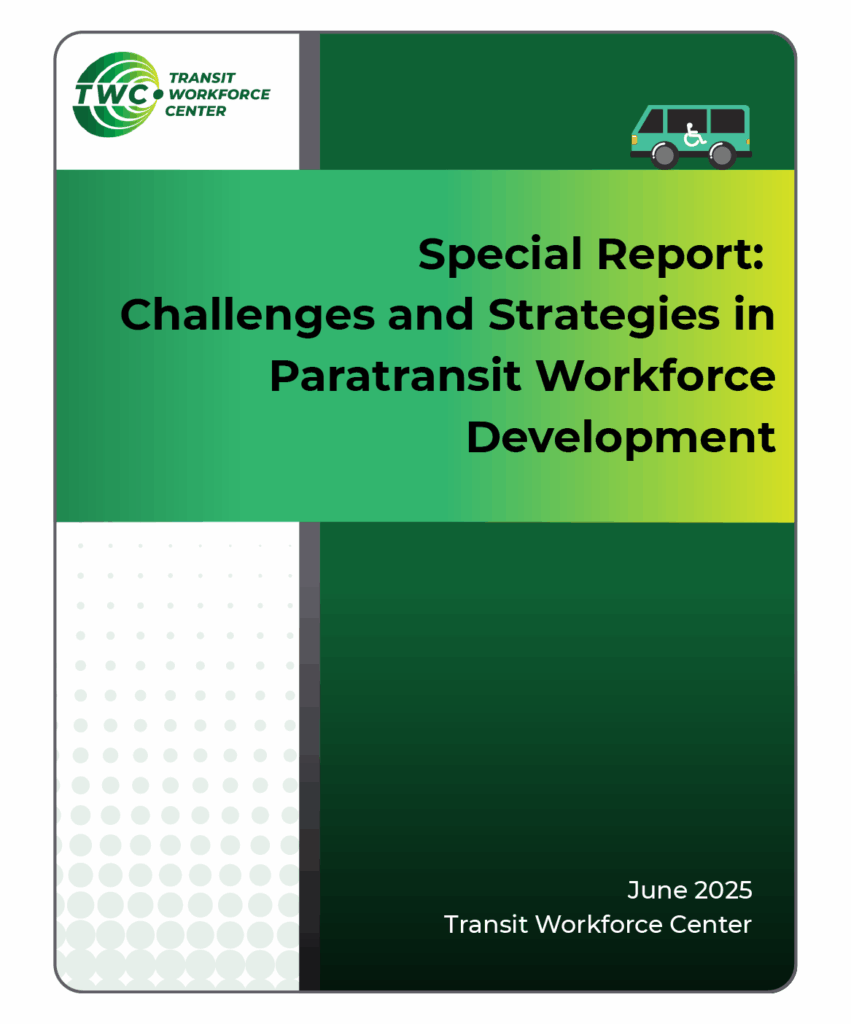
Special Report: Challenges and Strategies in Paratransit Workforce Development
This report aims to provide a brief update to a 2010 study on paratransit operator recruitment and retention, focusing not just on operators but on the entire paratransit workforce, including a range of frontline roles. To learn more about the unique workforce challenges of this modal context, as well as what successful strategies paratransit providers have used to combat those challenges, the Transit Workforce Center (TWC) research team conducted interviews involving 22 individuals across 13 paratransit systems in nine states. This report documents our learning from those interviews.
Transit Workforce Center
June 2025
LEARN MORE
Since the passage of the Americans with Disabilities Act (ADA) in 1990, paratransit has been a staple component of public transportation systems across the United States. ADA complementary paratransit provides transportation to people who, because of a disability, cannot use fixed-route service independently. Despite the importance of this mode in the overall health of urban transportation infrastructure, very little research has focused on the development of the paratransit workforce since a seminal 2010 study on paratransit operator recruitment and retention. This report aims to provide a brief update to the 2010 study, focusing not just on operators but on the entire paratransit workforce, including a range of frontline roles. To learn more about the unique workforce challenges of this modal context, as well as what successful strategies paratransit providers have used to combat those challenges, the Transit Workforce Center (TWC) research team conducted interviews involving 22 individuals across 13 paratransit systems in nine states. This report documents our learning from those interviews.
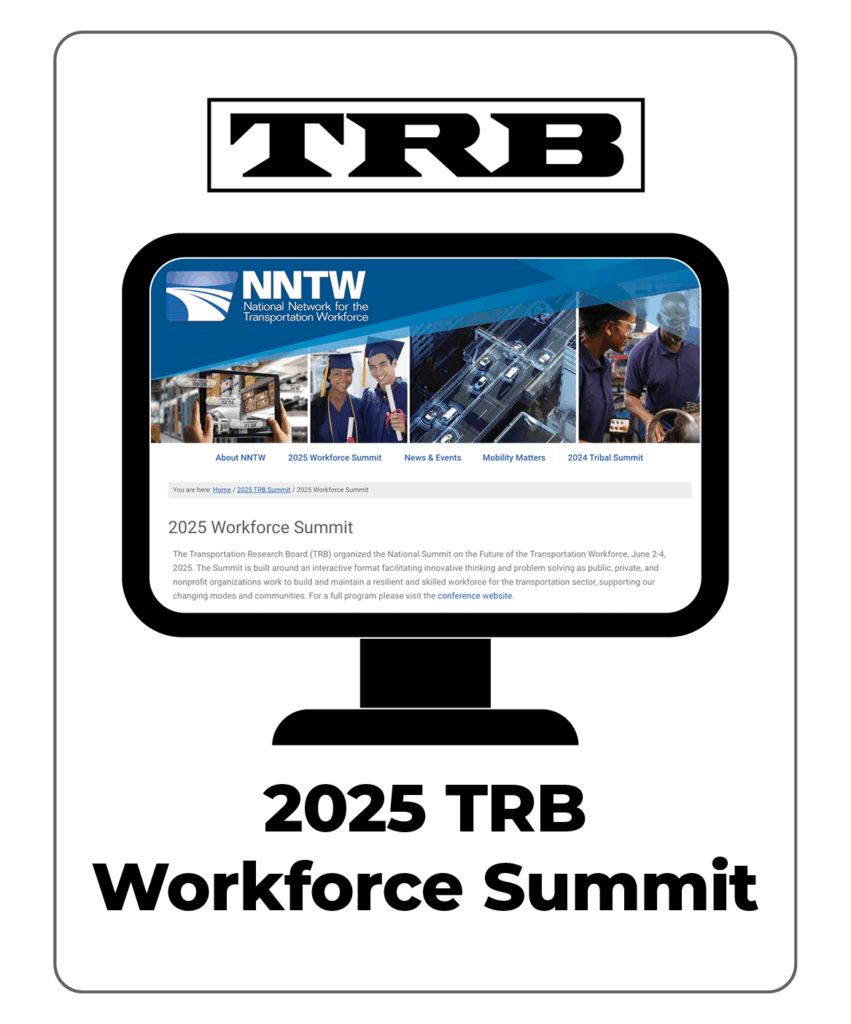
2025 TRB Workforce Summit
The Transportation Research Board (TRB) organized the National Summit on the Future of the Transportation Workforce, June 2-4, 2025. The Summit is built around an interactive format facilitating innovative thinking and problem solving as public, private, and nonprofit organizations work to build and maintain a resilient and skilled workforce for the transportation sector, supporting our changing modes and communities. This landing page provides links to pre-conference webinars and briefing papers from summit sessions.
Transportation Research Board
June 2025
TOPICS: Career Pathways, Community Engagement, Hiring and Recruitment, Policy and Planning, Retention, Workforce Shortage
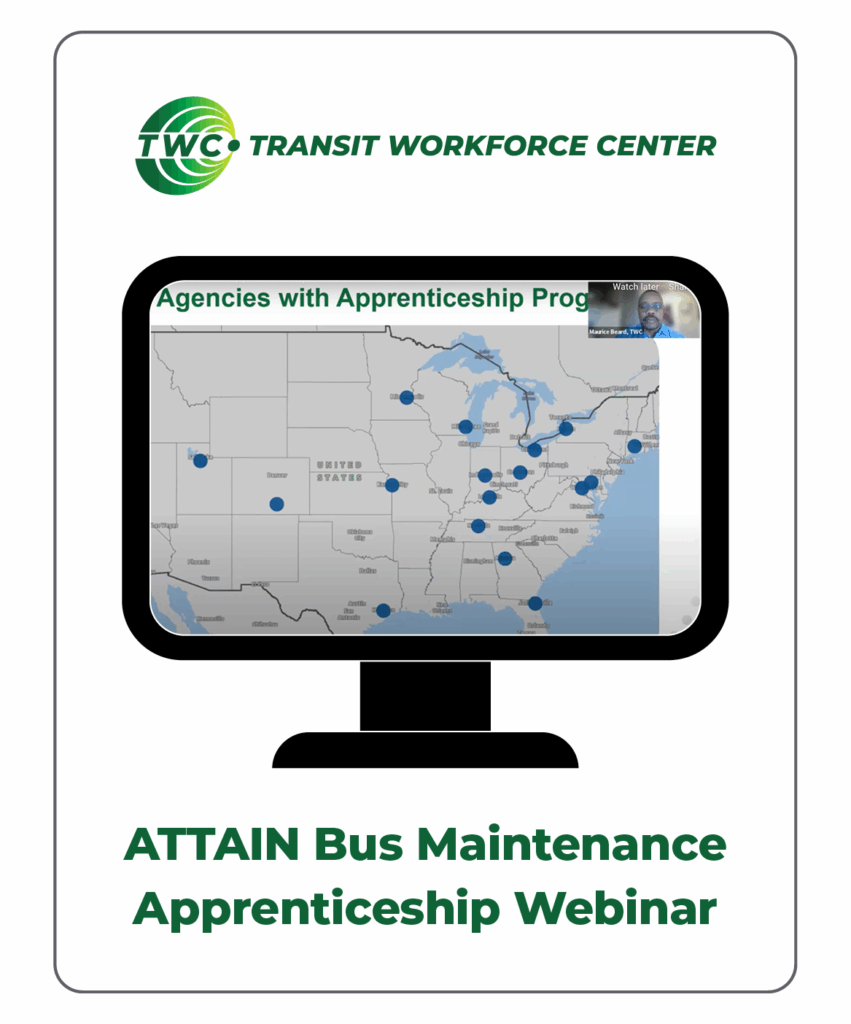
ATTAIN Bus Maintenance Apprenticeship Webinar
This ATTAIN webinar focused on bus maintenance apprenticeship programs and featured Milwaukee County Transit System/Amalgamated Transit Union Local 998 and Jacksonville Transit Authority/International Association of Machinists and Aerospace Workers Lodge 759. Panelists from these transit agencies and labor unions outlined the development process and the final structure of their apprenticeship programs while highlighting how this strategy was implemented and why it works, offering benefits for both the agency and the workforce.
Transit Workforce Center
May 2025
LEARN MORE
This ATTAIN webinar focused on bus maintenance apprenticeship programs and featured Milwaukee County Transit System/Amalgamated Transit Union Local 998 and Jacksonville Transit Authority/International Association of Machinists and Aerospace Workers Lodge 759. Panelists from these transit agencies and labor unions outlined the development process and the final structure of their apprenticeship programs while highlighting how this strategy was implemented and why it works, offering benefits for both the agency and the workforce.
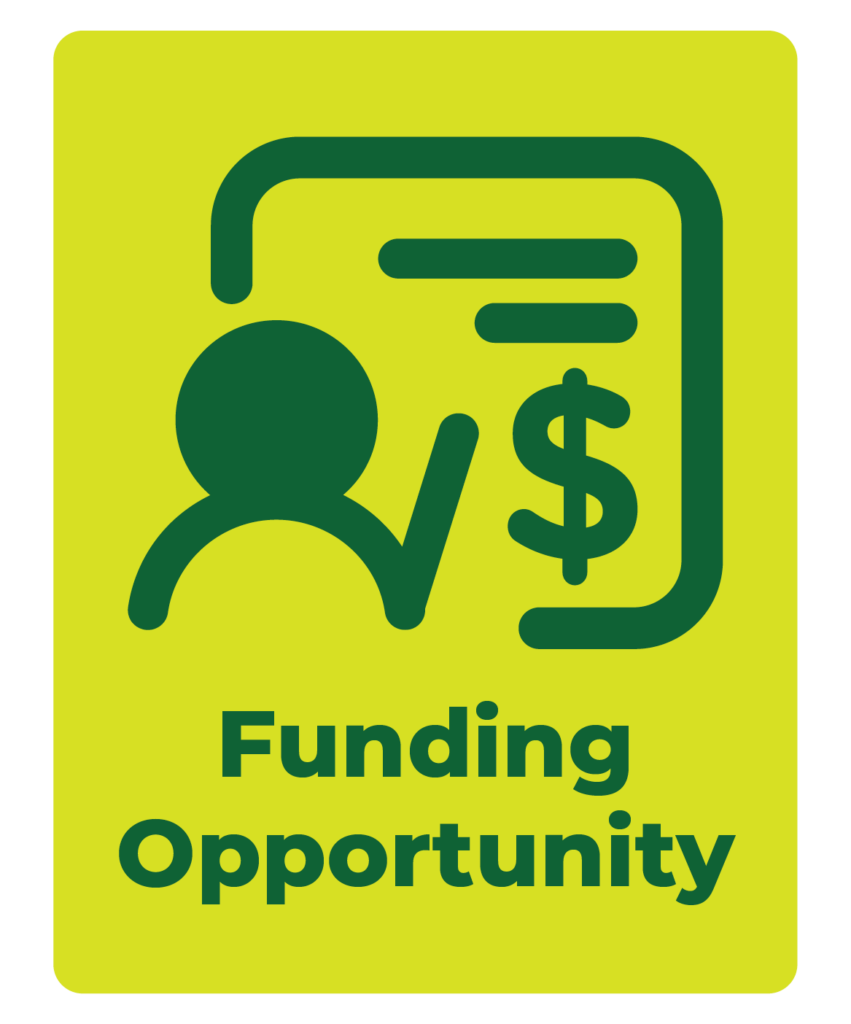
Low-No Grant Program and the Grants for Buses and Bus Facilities Competitive Program FY2025
Administering Agency: Federal Transit Administration
Posted Date: May 14, 2025
Closing Date for Applications:
Total Program Funding: $1,503,615,573
Geographic Scope: National
TOPICS: Funding Opportunities, Low-No, Training
Description: The purpose of the Low-No Program is to support the transition of the nation’s transit fleet to the lowest polluting and most energy efficient transit vehicles. The Low-No Program provides funding to state and local governmental authorities for the purchase or lease of zero-emission and low-emission transit buses, including acquisition, construction, and leasing of required supporting facilities.
The purpose of the Buses and Bus Facilities Competitive Program is to assist in the financing of buses and bus facilities capital projects, including replacing, rehabilitating, purchasing or leasing buses or related equipment, and rehabilitating, purchasing, constructing or leasing bus-related facilities.
Additionally, recipients are permitted to use up to 0.5 percent of their requested grant award for workforce development activities eligible under federal public transportation law (49 U.S.C. 5314(b)) and an additional 0.5 percent for costs associated with training at the National Transit Institute. For applicants proposing projects related to zero-emission vehicles for either program, 5 percent of the requested federal award must be used for workforce development activities.
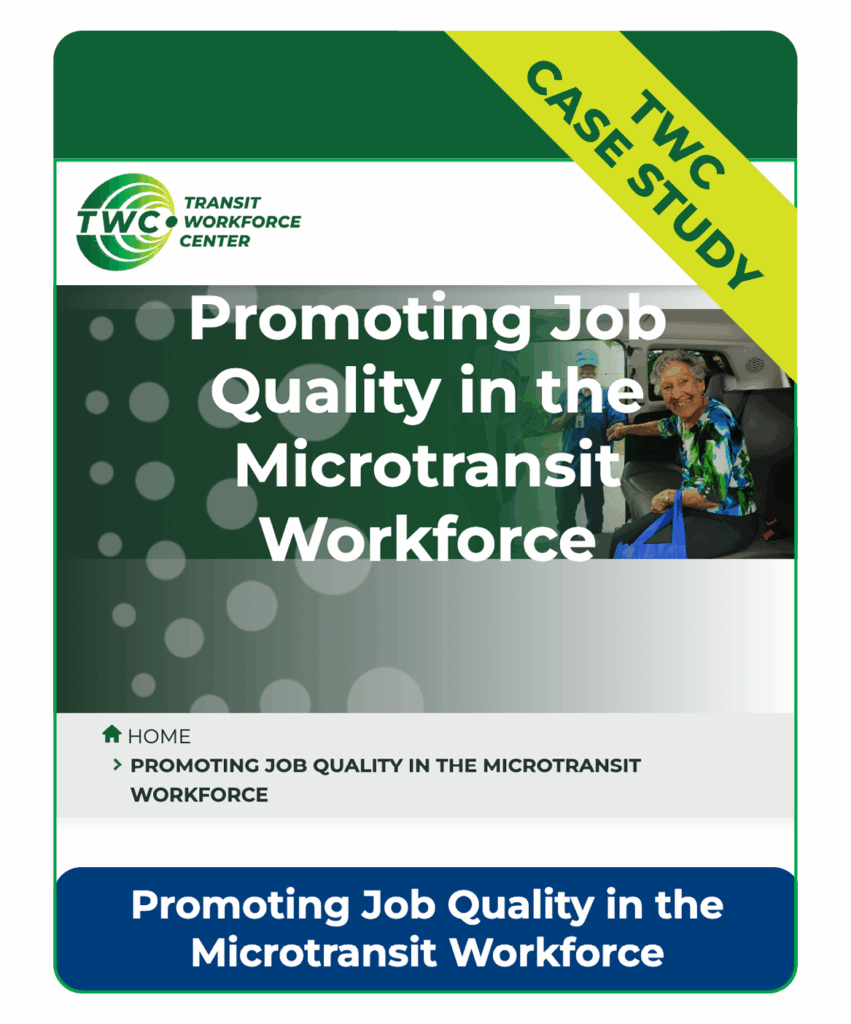
Case Study: Promoting Job Quality in the Microtransit Workforce
Microtransit, a relatively new form of demand response public transportation, is on the rise. TWC’s new set of microtransit case studies provides various perspectives on microtransit that include examples of how it has successfully been provided in-house and with a union-represented workforce. The case studies share experiences from four transit locations that are implementing microtransit service in ways that promote job quality for operators, technicians, and others, while also providing greater control over the quality of the service.
Transit Workforce Center
May 2025
LEARN MORE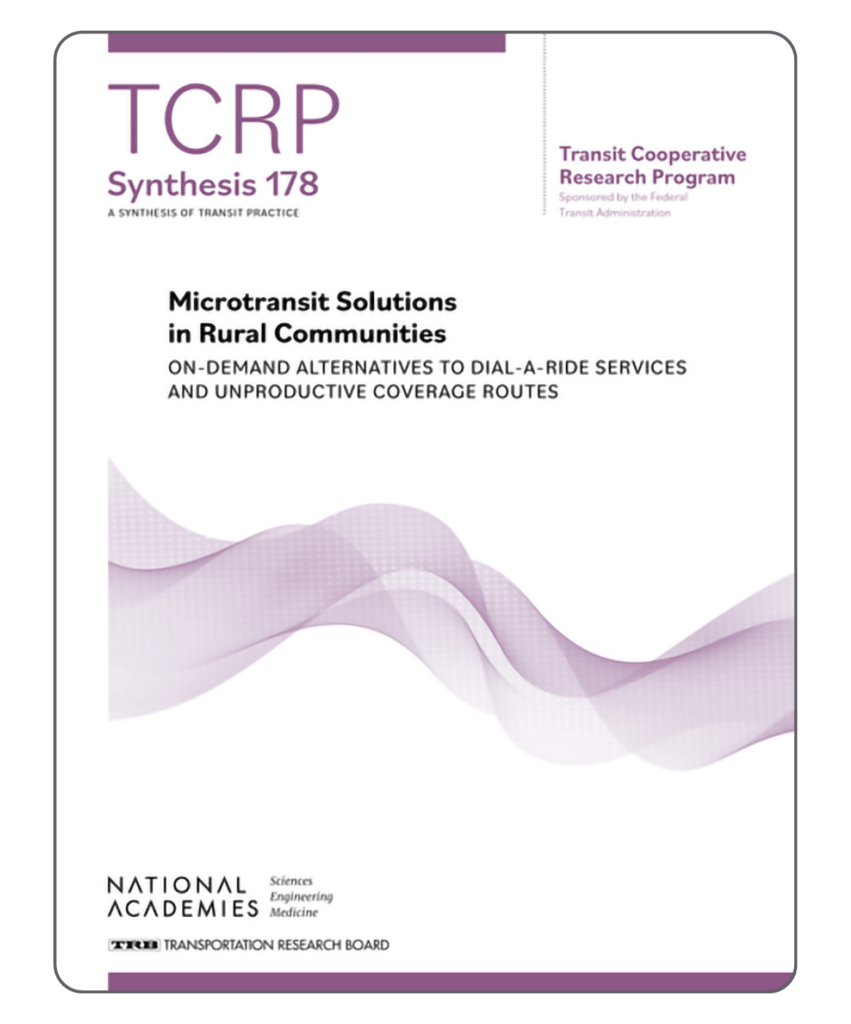
Microtransit Solutions in Rural Communities
TCRP Synthesis 178: Microtransit Solutions in Rural Communities: On-Demand Alternatives to Dial-a-Ride Services and Unproductive Coverage Routes provides a comprehensive overview of rural microtransit operations through a literature review, surveys of 19 transit providers, and case examples of seven agencies.
Transit Cooperative Research Program
May 2025
TOPICS: Policy and Planning
Contributor(s): National Academies of Sciences, Engineering, and Medicine; Transportation Research Board; Transit Cooperative Research Program; Alanna McKeeman; Jessica Klion; Laura Duke
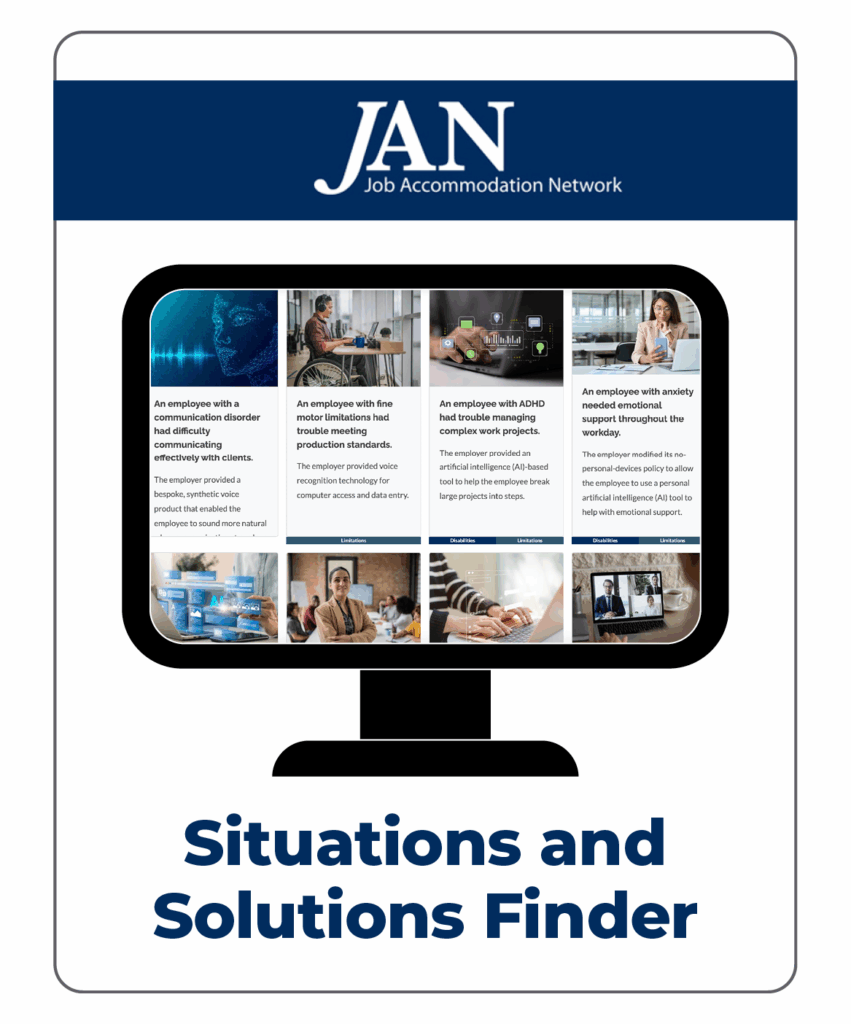
Situations and Solutions Finder
The Situations and Solutions Finder offers a library of workplace accommodation scenarios for industries, such as transportation (e.g., bus drivers, mechanics, dispatchers, etc.) to support workers with disabilities (by disability type, limitations, and occupation). The situations and solutions included are examples of accommodations that were made by JAN customers. Because accommodations are made on a case-by-case basis, these examples may not be effective for every individual or workplace but offer ideas about the types of accommodations that may be possible.
Job Accommodation Network
LEARN MORE
The Job Accommodation Network provides free, expert, and confidential assistance on work accommodations for employers, workers and job seekers with disabilities, and all others in industries, such as transportation.
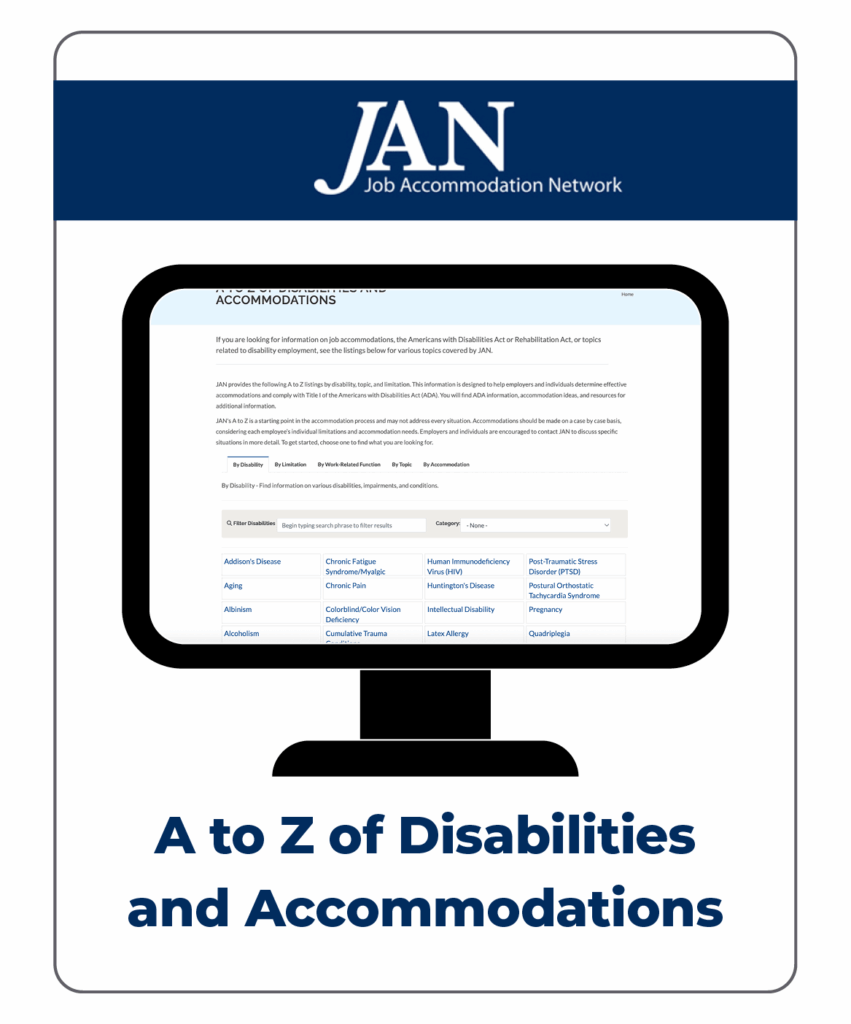
A to Z of Disabilities and Accommodations
The A to Z Library of Disabilities and Accommodations presents information on many common work accommodations, which is sortable by disability, work limitation, work function, and accommodation type and issue. This information is designed to help employers and individuals determine effective accommodations and comply with Title I of the Americans with Disabilities Act (ADA). You will find ADA information, accommodation ideas, and resources for additional information.
Job Accommodation Network
LEARN MORE
The Job Accommodation Network (JAN) provides free, expert, and confidential assistance on work accommodations for employers, workers and job seekers with disabilities, and all others in industries, such as transportation.







